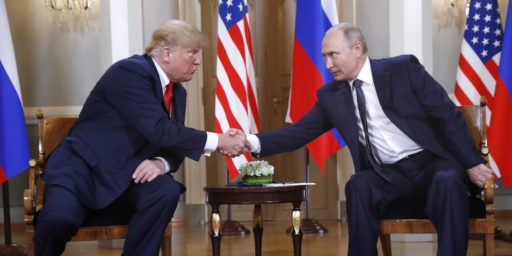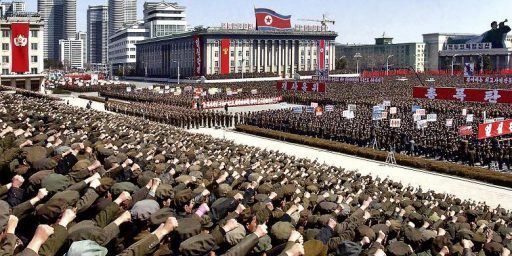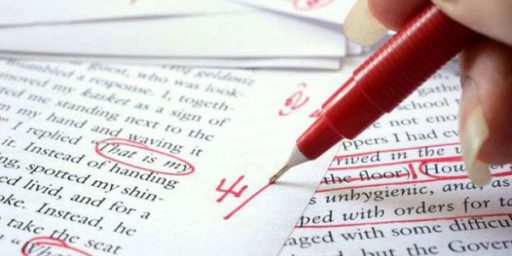Finding Trustworthy Translators
The NYT Public Editor gets a question from a reader wondering how journalists operating in Iraq and elsewhere can know that the translators they rely upon are trustworthy and not enemy double agents.
Andrea Kannapell, a staff editor on the Foreign Desk, explains the process the NYT uses to vet their translators. In addition to that starting point, she writes,
There are quite a few ways to double-check the trustworthiness of a translator. Sometimes, correspondents tell me, the interviewees themselves know enough English to warn the correspondent that the translation is not accurate (that happened in Chad, and has also occurred in the Middle East); sometimes the correspondent repeats a question to see if the answer is the same (that is widespread).
Correspondents generally try to use translators that other correspondents have found trustworthy; in South Korea and quite a few other places, as in Iraq, we have hired those we found the best to retain their services. Correspondents rapidly develop relationships with translators, with whom they often spend significant time — not just working, but eating and traveling together.
Beyond that, if a reporter is working with an unfamiliar translator, he or she tends to regard the interview as a starting point for reporting, not its culmination, and to seek more accounts and outside corroboration.
That seems reasonable enough.
via Romanesco






Still, there’s one great SNL skit there to be made …
Reminds me of the old joke about the Texas Ranger in the days of the Wild West who pursued a Mexican bank robber across the border. He caught up with the bandito in an isolated village and, not speaking any Spanish (and the bandito not speaking any English) enlisted the aid of one of the locals who knew both languages.
Ranger (in English): “Tell me where you hid the money you stole from the bank.”
Translator (in Spanish): “He says, ‘Tell me where you hid the money you stole from the bank.'”
Bandito (in Spanish): “Go to hell.”
Translator (in English): “He says, ‘go to hell’.”
Ranger (in English, cocking both his pistols): “If you won’t talk, there’s no reason for me to keep you alive.”
Translator (in Spanish) “He says, ‘If you won’t talk, there’s no reason for me to keep you alive'”
Bandito (in Spanish, his nerve breaking): “The money is hidden in the tall house south of the well, under the ashes in the fireplace.”
Translator (in English): “He says, ‘You don’t scare me. Go ahead and shoot.'”
It would seem to me with the layers of editors for quality control, a recording of the interview could be made and at least anything quoted or was a substantive part of the interview could be checked “back at the office”. It would also provide a good check on field quality of translations if they know their work is going to be randomly sampled for quality.
I personally think the use of unsupervised stringers (especially those who turn up to be working with the terrorists) is a bigger issue than the translators.